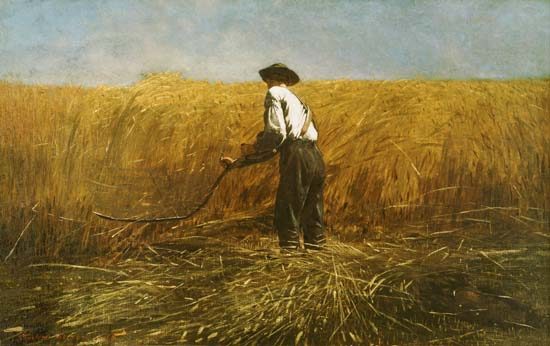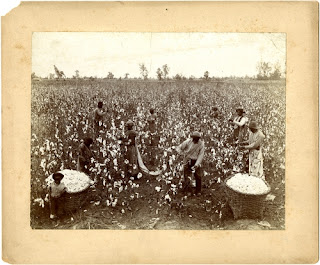Winslow Homer’s painting, The Veteran in a New Field (1865) depicts a hopeful image for America. The bountiful fields of grain seem to stretch on and on while the farmer’s uniform jacket has been cast aside. For a full analysis of this painting see the National Endowment for the Humanities Picturing America site and this Edsitement lesson which includes a “map” to the painting highlighting the many symbols and their meanings.
While there were numerous veterans who returned to their northern farms and picked up their scythes, there were many other veterans who returned to very different fields–fields they didn’t own and crops they couldn’t sell. Natasha Trethewey responds to Homer’s painting in a poem called Again, The Fields. The poem is a reminder that many African-American veterans returned from the Civil War only to become bound into the sharecropping system.
Instructions
Have your students read this poem aloud.
What images do they envision in the first stanza? Could they find a Civil War painting or photograph that might illustrate that bone-drag weariness of marching?
Show Homer’s painting. Which stanzas describe Homer’s painting? What is the mood of those stanzas? What happens in the last stanza? Who is the poet describing? What is the mood of this stanza?
See if they can find an image that depicts this other veteran.
This exercise might be an interesting transition from the Civil War to Reconstruction and the New South.

